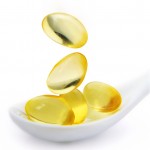Brain and Memory Problems
Your brain function does change as you get older and can affect your ability to store and retrieve information, so you may find that words and putting names to faces sometimes eludes you.
Unfortunately, the risk of Alzheimer’s and other types of dementia also increases with age. Dementia is now the biggest killer for women, causing three times more deaths than breast cancer. It is the third biggest killer for men.
Research suggests that there is a 20 to 30 year interval between the first development of amyloid plaque in the brain (characteristic of Alzheimer’s) and the onset of dementia. So, no matter what your age, it’s never too late to start taking preventative measures.
Dementia is an umbrella term that includes up to 100 different types of diseases. The most common type is Alzheimer’s disease which occurs in 50 to 75% of cases and is caused by plaque and tangles developing in the brain. The next most common is vascular dementia which accounts for 20 to 30% of cases and is a problem with supply of blood to the brain
You may fear that dementia is in your genes, even if you are at high risk because of your family history, it is not inevitable that you will succumb to the disease. The way you live your life – and in particular the way in which you eat – can make a huge difference to your future, slowing down cognitive decline or even reversing it. Indeed research shows that diet and lifestyle have more to offer the ageing brain than the drugs that are promoted for it.
You might have just started to notice some memory loss and want to do something about it straightaway, maybe you keep going into a room and can’t remember what you went in there for or reading a page in a book or magazine and realise that you have to read it again because you have loss your concentration. Or you may have a strong family history of dementia or Alzheimer’s and you want to prevent your own cognitive decline.
What are your choices?

What you eat can have an enormous impact on your memory as you age and also help to reduce your risk. We know that the Mediterranean diet has been found to reduce the risk of mild cognitive impairment by 28% and to reduce the risk by nearly 50% of this progressing to Alzheimer’s. The advice is to increase the consumption of fresh fruit and vegetables, olive oil and eat more oily fish.
Making sure you keep your blood sugar in balance is also important as blood sugar and insulin have been so closely linked with an increased risk of Alzheimer’s that it has been suggested that Alzheimer’s should be called type 3 diabetes
Supplements

Certain nutrients can be particularly helpful in keeping your brain and memory good.
B vitamins
Research has shown that people taking the B vitamins B6, B12 and folic acid at particular levels (vitamin B6 20mg, vitamin B12 500mcg, folic acid 800mcg) were almost entirely protected from brain shrinkage compared to those using the placebo. Those taking these levels of B vitamins had 90% less brain shrinkage.
Acetyl-L-carnitine
There is an amino acid called acetyl-L-carnitine which can be helpful as it increases the brain receptors that would normally deteriorate with age so helpful for memory loss, Alzheimer’s and other types of dementia.
Phosphatidylcholine
People with Alzheimer’s have been found to have a shortage of the neurotransmitter acetylcholine in the brain and drugs which mimic acetylcholine are often used as a treatment for Alzheimer’s. Acetylcholine is critical for your memory and brain function.
Your body uses phosphatidyl choline to make the brain chemical called acetylcholine, so it is important to take this nutrient in a supplement.
Phosphatidylserine
Phosphatidylserine is an important part of all your cells and particularly the cell membrane. Research has shown that phosphatidyl serine can help improve memory in general even in those without dementia.
L-arginine
L-arginine is an essential amino acid and gets converted to nitric oxide which is a neurotransmitter in your brain. Nitric oxide is important for cognitive function thought to be one of the chemical messengers involved in learning and memory.
Omega 3 fish oil
Supplements of omega 3 fish oils can also be helpful as DHA one of the major omega 3 fatty acid in the brain seems to have the most protective effect against Alzheimer’s. The DHA in omega 3 fatty acids helps to prevent the plaque forming in the brain which is present in Alzheimer’s and they help improve cerebral blood flow and reduce inflammation, making them important in the fight against not only Alzheimer’s but also vascular dementia.
Probiotics
Your brain and gut are very much connected and good bacteria have direct effects on your memory, mood and cognition. Scientists talk about the brain–gut axis; and they even call the gut the ‘second brain’, because it is filled with the same neurotransmitters as your brain. Both probiotics and prebiotics (they promote the growth of the probiotics) have anti-inflammatory effects, which we know is important in the treatment of both vascular dementia and Alzheimer’s. Overall, ‘probiotic bacteria represent the most promising intervention for primary prevention’.
If you would like to order these special supplements now, you can do so through the Natural Health Practice by clicking here for Brain and Memory Problems Supplements at The Natural Health Practice
Tests

There are a number of tests available that are extremely useful and are well worth considering. These tests can give you invaluable insights into understanding what is going on in your body at the moment and can tell you what deficiencies and heavy toxic metal excesses you may have.
The analysis of these results lets you know what supplements you need to take in order to bring your body back into balance and into optimum health. You would then be re-tested after three months to monitor your progress and to adjust the supplement programme accordingly.
Mineral Deficiency Test with Supplement Programme (Hair)
Find out what the mineral and heavy toxic levels are in your body This test measures the deficiency and excess levels of 13 different minerals and 6 heavy toxic metals that may be present in your body. Find out more – Mineral Deficiency Test with Supplement Programme (Hair)
Omega 3 Deficiency Test (at home finger prick blood)
This test is very important to make sure that you have good levels of the omega 3 fats, particularly DHA, that are crucial for your brain and memory.
Signs of an omega 3 fatty acid are dry skin, lifeless hair, cracked nails, fatigue, depression, dry eyes, lack of motivation, aching joints, difficulty in losing weight, forgetfulness, and cystitis. It is now estimated that we are getting twenty five times more omega 6 fats from our diet than omega 3 and over the last century there has been an 80% decrease in the consumption of these omega 3 fatty acids. When you eat omega 3 fats they are converted to substances that have an anti-inflammatory effect on the body. Find out more – Omega 3 Deficiency Test (at home finger prick blood)
Many of the women I see in the clinic have been taking evening primrose oil supplements – an omega 6 fatty acid – for many years as it can be helpful with PMS.
But you can end up with too much omega 6 and not enough omega 3 in your body. Some women are also taking combinations such as omega 3, 6, and 9 in supplement form because they have heard that we need a good balance of all the Omega fatty acids. This is true, but you have to take into account what your own levels may be in the first place. It is no good adding in more Omega 6 if you have already got enough or in fact too much in your body. (You can now have a simple blood test to tell you if you have the correct levels of Omega 3 to Omega 6 in your body see below). To check whether you have sufficient levels of Omega 3 please click Omega 3 Deficiency Test (at home finger prick blood).
Homocysteine Test by Post.
High homocysteine levels have been implicated in the development of a number of health problems including not only Alzheimer’s and other forms of dementia but also heart disease, strokes, osteoporosis and infertility.
So it is important to know whether you have raised levels of homocysteine by taking a simple finger prick blood test.
When you eat protein, your body creates an amino acid called homocysteine, which has to be detoxified and rendered harmless and excreted through your urine. Because homocysteine is toxic, high levels can contribute to the thickening and hardening of the artery walls, making the blood more likely to clot, damaging the blood vessels and resulting in the build-up of fatty deposits or plaque. To check your homocysteine level with a simple home finger prick test click Homocysteine Test by Post.
If you need help in obtaining any of the supplements or tests mentioned above, click Brain and Memory Problems options at The Natural Health Practice. They can supply all of them for you online or if you prefer to talk to somebody first you can also order by mail order on the telephone. The products supplied by this company are always of the highest quality.
Plan of Action
Nutrition
Ensure you are getting the right nutrition. Follow the dietary recommendations outlined in the free Foundation of Health ebook. For more information on the specialist dietary recommendations for Brain and Memory Problems, read the book Natural Solutions for Dementia and Alzheimer’s at The Natural Health Practice.
Supplements
The supplement programme below should be taken for at least three months in order to achieve best results.
Nutrients and Amounts
| A good multivitamin and mineral specifically for brain health | Probiotic 22 billion beneficial bacteria |
| Omega 3 (770mg EPA and 510 DHA) | Vitamin C 1000mg |
| Vitamin B6 20mg | Vitamin B12 500mcg |
| Folic acid as methylfolate 800mcg | L-arginine 100mg |
| Phosphatidyl choline 150mg | Phosphatidyl serine 75mg |
| Co-enzyme Q10 30mg | Acetyl carnitine 75mg |
| Alpha lipoic acid 75mg | Selenium 100mcg |
To avoid having to purchase numerous supplements for the above and to make the process easier, I have put together a supplement programme which contains all the nutrients mentioned above and in the correct amounts. For more information about these click Brain and Memory Problems Supplement Programme.
In my book Natural Solutions for Dementia and Alzheimer’s, I explain the impact of nutrition on your brain and memory and also give in great detail a list of the most important nutrients required in order to help you. If you would like to order these special supplements now, you can do so through the Natural Health Practice by clicking Brain and Memory Problems Supplements at The Natural Health Practice.
Tests
The tests below have been specially selected to be the most helpful if you are concerned about your brain and memory.
Mineral
Deficiency Test with Supplement Programme (Hair)
Omega
3 Deficiency Test (at home finger prick blood)
After three months you would then have a re-test in order to monitor your progress and adjust your supplement programme according to your new condition.
If you need help in obtaining any of the supplements or tests mentioned above, click Brain and Memory Problems options at The Natural Health Practice. They can supply all of them for you online or if you prefer to talk to somebody first you can also order by mail order on the telephone. The products supplied by this company are always of the highest quality.


